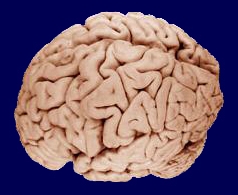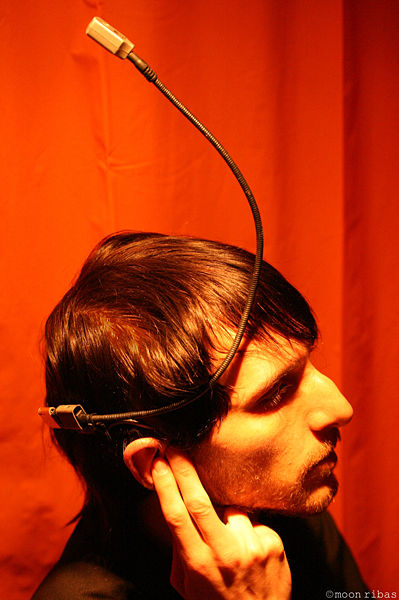Surprising Science
All Stories
At this year’s Lindau meeting of Nobel Prize winners, the virologist Harald zur Hausen said vaccinating only boys against the human papillomavirus would achieve better results.
Contrary to common wisdom that superbugs with antibiotic resistance are outcompeted by their non-super neighbors, multidrug-resistant bacteria may be here to stay.
Good news for parents: You can get your children to eat zucchini, broccoli, tomatoes, cauliflower and squash—and like them. Just don’t mention that is what they are really eating.
A Swiss immunologist says that an antibody which recognizes all strains of influenza A could be a universal vaccine blueprint and could overcome the flu’s ability to continually mutate.
A new photovoltaic energy-conversion system with many practical applications developed at M.I.T. can be powered solely by heat, generating electricity with no sunlight at all.
Powerful design tools and techniques such as 3-D printing will enable manufacturers to be more nimble, creating flexible strategies that deliver more customized products.
Scientists are getting closer to creating life from a test tube in laboratory settings. Thanks to machines that replicate R.N.A. strands, Earth may be the first place we experience alien life.
Astrophysicist David Spiegel and physicist Edwin Turner say that the life here on Earth could be common, or it could be extremely rare—there’s no reason to prefer one conclusion over the other.
Despite high hopes for a new physics from the world’s largest particle collider, beyond a handful of unusual events, the latest data from the Large Hadron Collider are frustratingly ordinary.
Investments in renewable energy have been booming, but the government subsidies that have made renewable energy an attractive investment are bankrupting national budgets.
Infringement is different than ‘stealing’ in some very important ways. And yet, industry folks, politicians and law enforcement continue to claim that one is ‘no different’ from the other.
Astronomers have discovered a huge mass of water — some 140 trillion times the amount of water in all the Earth’s oceans combined. This water is 12 billion light years from Earth, evidence that water existed in abundance when the universe was young.
Researchers suggest that happy delusions help when looking at your partner in a general sense and over the long term. But be more realistic on the short term details, they warn.
What if it turns out that pornography use actually reduces the desire to commit violent sexual crimes? It is a controversial idea, but one supported by recent scientific studies.
Despite our world now driven by precise measurements of data, being vague, imprecise, unclear and ambiguous may yield benefits in our personal and professional lives.
At the very least, says Marcia Angell, we need to stop thinking of psychoactive drugs as the best, and often the only, treatment for mental illness or emotional distress.
The first book of philosophical essays in years with a shot at being advertised on the evening news asks what big questions are posed by society’s acceptance and men’s use of Viagra.
According to a new study published in the journal PLoS ONE, bigger brains may have trickled through evolution’s passageway not because of reason and intellect, but due to exercise.
First Lady Michelle Obama plus a chain store and several smaller organizations are trying to make fresh fruits and vegetables available in the nation’s ‘food deserts’ and in poor communities.
Thinkers worried about the Web rotting our brains would find an ally in the ancient Greek sage. But are their fears justified?
Harvard Professor Clayton Christensen has developed a new way to spot companies making bold bets for the future. At the top of his list of today’s business invotators is Marc Benioff.
An improved process for making large amounts of pure metallic carbon nanotubes could hold the key to overhauling the electrical power grid with more efficient transmission lines.
Fighting the scourge of childhood obesity, the California start-up Revolution Foods is bringing tasty and nutritious school lunches to school districts that lack money to provide them.
Real estate mogul and creator of the Budget Suites of America chain, Robert Bigelow is working to develop similarly spartan accommodation in space. His inflatable hotels will launch by 2016.
A new study in the journal Carbon Management says architects should consider more wooden structures to reduce carbon emissions and create valuable carbon storehouses.
The theory of the multiverse may seem crazy, but cosmologits Alexander Vilenkin and Max Tegmark explain why they think the theory is good science and how it can be tested.
The vast majority of Earth’s water is too salty for humans to drink and desalination has, until now, proven too inefficient to be practical. A German engineering company has a new solution.
Every day we have to make decisions that involve evaluating or choosing between options, often without much information to go on. So how do we prevent analysis paralysis?
The fusion of mind and machine—what futurist Ray Kurzweil calls the Singularity—depends on the faulty premise that our understanding of neurobiology increases exponentially.
Neuroscience and game theory may offer some insight into the current stalemate, suggesting that a sense of moral superiority could be disrupting a natural tendency to cooperate.





























